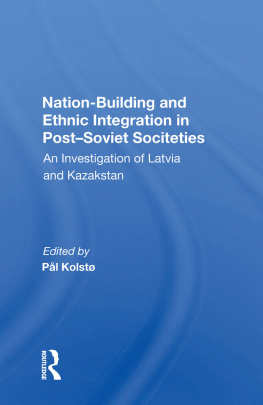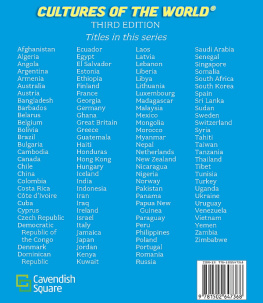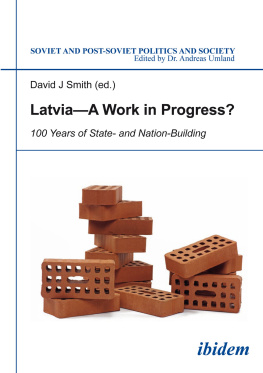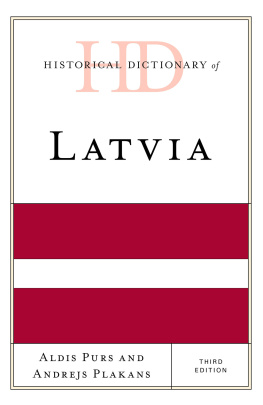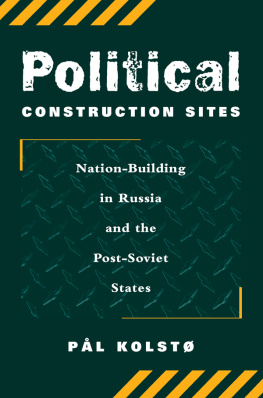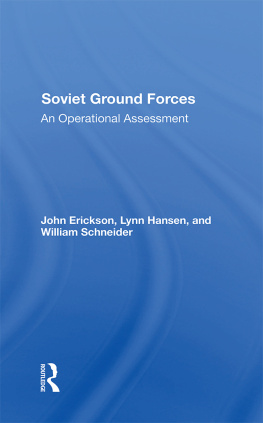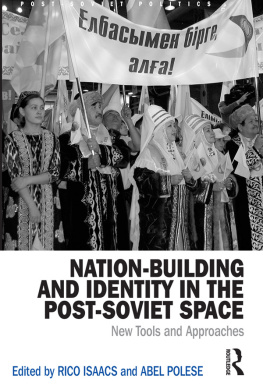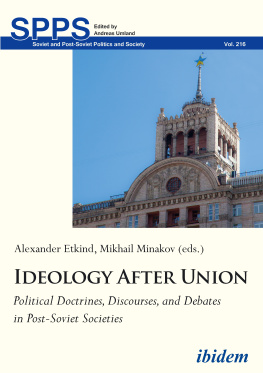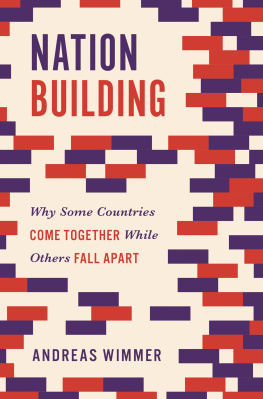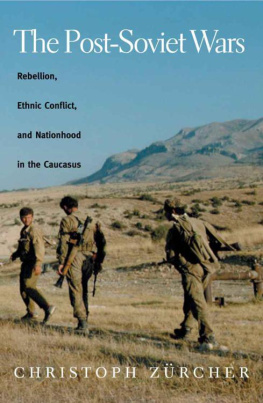Nation-Building and Ethnic Integration in Post-Soviet Societies
Nation-Building and Ethnic Integration in Post-Soviet Societies
An Investigation of Latvia and Kazakstan
Edited by
Pl Kolst
First published 1999 by Westview Press
Published 2018 by Routledge
52 Vanderbilt Avenue, New York, NY 10017
2 Park Square, Milton Park, Abingdon, Oxon OX14 4RN
Routledge is an imprint of the Taylor & Francis Group, an informa business
Copyright 1999 Taylor & Francis
All rights reserved. No part of this book may be reprinted or reproduced or utilised in any form or by any electronic, mechanical, or other means, now known or hereafter invented, including photocopying and recording, or in any information storage or retrieval system, without permission in writing from the publishers.
Notice:
Product or corporate names may be trademarks or registered trademarks, and are used only for identification and explanation without intent to infringe.
A CIP catalog record for this book is available from the Library of Congress.
ISBN 13: 978-0-367-00713-3 (hbk)
Contents
, Pl Kolst
, Pl Kolst
, Pl Kolst
, Aina Antane and Boris Tsilevich
, Jrn Holm-Hansen
, Irina Malkova, Pl Kolst, and Hans O. Melberg
, Pl Kolst
Guide
This book is based on the research project "Integration and nation-building in bi-cultural post-Soviet societies, the cases of Latvia and Kazakstan," which was financed by The Norwegian Research Council, Programme for Eastern Europe, Project no. 110191/730. The team has consisted of two Norwegians, project coordinator Pl Kolst, University of Oslo, and Jam Holm-Hansen, the Norwegian Institute of Regional and Urban Research; two Latvians, Aina Antane, Institute of History, Latvian Academy of Sciences, and Boris Tsilevich from the independent research institute Baltic Insight; and one Kazakstanian, Irina Malkova from the Giller Institute in Almaty. At a later stage Hans O. Melberg was included in the team.
We present the report as a unified whole, not a collection of papers on related topics. The project was conceived in a fruitful dialogue among the research collaborators and we have all contributed with important inputs to the over-all scheme. The chapters are nevertheless signed by the person(s) who wrote them and we are responsible for each our own parts. The Latvian and Kazakstani contributions have been translated from Russian by the editor.
In compliance with the wishes of Kazakstan's political authorities we use the official spelling of the republic's name, i.e. Kazakstan, throughout the book (quotations excepted), rather than the more conventional "Kazakhstan." In line with this, we spell the attendant ethnonym thus: Kazak(s).
The book could never have been written without the invaluable support from our two outstanding project assistants, Solveig Rossebe and Hans Olav Melberg. We also would like to thank the following persons for having taken the time and effort to read and comment upon several chapters, sometimes even the entire book: Aadne Aasland, Shirin Akiner, Olga Brusina, Juris Dreifelds, David Laitin, Hans Olav Melberg, Aleksej Semenov, Graham Smith, Anton Steen and yvind sterud. Many of the comments we received were extremely useful and helped us redo the original manuscript into a more coherent and, we believe, better book. Needless to say, the inconsistencies and shortcomings that remain are entirely our own responsibility.
Professor Pl Kolst
Department of East European and Oriental Studies, University of Oslo
November 1998
Aina Antane is head of department of educational and social projects at the Multinational Culture Center, Riga.
Jrn Holm-Hansen is a researcher (political science) at the Norwegian Institute for Urban and Regional Research, Oslo.
Pl Kolst is professor of Russian and East European Area Studies at the University of Oslo.
Boris Tsilevich is a Research consultant at the Center for Educational and Social Research "Baltic Insight", and a member of the Saeima (Parliament) of the Republic of Latvia.
Irina Malkova is Director of the Research Group "Central Asian Project in Almaty."
Hans O. Melberg is a project assistant at the University of Oslo.
1
Aims and Aspirations
Pl Kolst
Following the demise of Communism, fifteen new states were established in the former Soviet Union. A "state," however, in the full sense of the word, does not come about simply by political proclamation of independence, still not by international recognition. A modem state must have control of its frontiers, a monopoly of coercive powers on its territory, be able to collect levies and taxes, and so on To carry out these tasks a modicum of administrative apparatus is needed, as well as abroad consensus in society concerning rules and routines for how the jobs shall be done.
In the fall of 1991 these preconditions were generally not fulfilled in any of the Soviet successor states. The armed forces on their territories and the levers of economic policy were beyond the control of the new state authorities. There were also no border defense systems, indeed, state borders were not even delineated in the terrain.
In this book, we will leave aside the economic and security problems of the new states and instead focus on some crucial political and cultural issues, "nation-building" as distinct from "state-building." In order to keep a state together in the modern world, it is essential that its population have a common identity and a shared feeling of common destiny. The citizens must be bound together by loyalty toward the same institutions, symbols, and values. This does not imply that all inhabitants of the state must partake in the same ethnic identity. National identity may, and in many cases must, be political rather than cultural.
The USSR prided itself on being a "multinational state," indeed, some hundred different ethnic groups were registered as living in its territory. In contrast, with the exception of Russia, all of the successor states have been proclaimed as "national states" or "nation-states." This basic concept can have (at least) two very different meanings. In the West, the dominant understanding is that of a political and civic entity, in which the nation is delineated on the basis of common territory, common government, and, to some extent, common political history. There exists, however, a rival concept of a nation as a cultural entity, based on common language, traditions, mores, and religion, in short: an ethnic nation.
In a civic nation-building project the authorities will try to secure the political loyalty of all inhabitants without encroaching upon their cultural distinctiveness. Political rights are extended to all inhabitants on an equal footing. Political traditions and symbols common to all ethnic groups are cultivated, or, if necessary, created from scratch. One of the shortcomings of this strategy is the weaker emotive power of supraethnic symbols. They may easily by dismissed as artefacts, which, of course, in a sense they are. Nevertheless, large population groups in multiethnic societies may develop a double set of identities: Politically, they are proud of being citizens of this or that particular state; culturally, they identify strongly with their own ethnic group.

